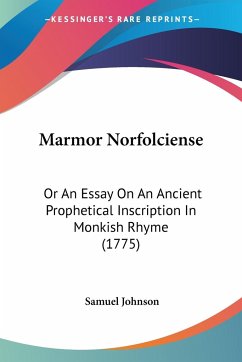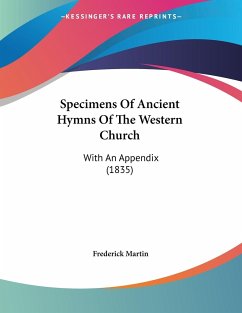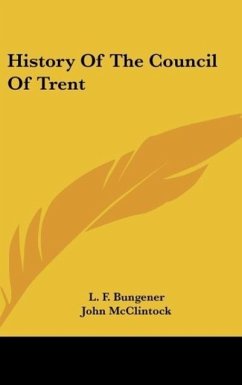
Marmor Norfolciense
Or An Essay On An Ancient Prophetical Inscription In Monkish Rhyme (1775)

PAYBACK Punkte
10 °P sammeln!
Marmor Norfolciense is a book written by Samuel Johnson in 1775. The book is an essay on an ancient prophetical inscription in monkish rhyme. The inscription is found on a stone in the town of North Walsham in Norfolk, England. The essay explores the history and meaning of the inscription, which is believed to have been written by a monk in the 14th century. Johnson examines the language and structure of the poem, as well as its possible interpretations. He also provides historical context for the inscription, discussing the political and religious climate of the time. Marmor Norfolciense is a...
Marmor Norfolciense is a book written by Samuel Johnson in 1775. The book is an essay on an ancient prophetical inscription in monkish rhyme. The inscription is found on a stone in the town of North Walsham in Norfolk, England. The essay explores the history and meaning of the inscription, which is believed to have been written by a monk in the 14th century. Johnson examines the language and structure of the poem, as well as its possible interpretations. He also provides historical context for the inscription, discussing the political and religious climate of the time. Marmor Norfolciense is a fascinating exploration of an obscure piece of English history, written by one of the most celebrated authors of the 18th century.This scarce antiquarian book is a facsimile reprint of the old original and may contain some imperfections such as library marks and notations. Because we believe this work is culturally important, we have made it available as part of our commitment for protecting, preserving, and promoting the world's literature in affordable, high quality, modern editions, that are true to their original work.












